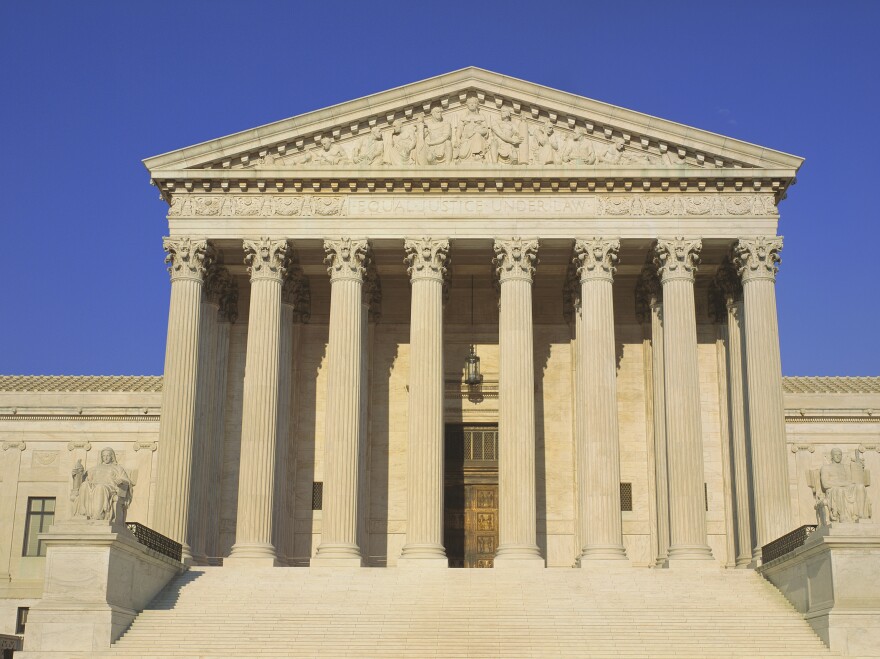Updated March 24, 2022 at 3:42 PM ET
The U.S. Supreme ruled Thursday that condemned prisoners are entitled to have religious advisers present in the death chamber to pray over them and touch them in a limited way.
The decision came in the case of John Henry Ramirez, convicted in the brutal murder of Pablo Castro, a father of nine, who was stabbed to death as he was closing up the convenience store where he worked.
The court's decision was the latest and by far the most definitive in a series of cases that have come to to the court, dividing the justices and even embarrassing them at times with contradictory rulings that appeared to be more favorable for Christian spiritual advisers than for minority religions.
Thursday's ruling, however, was clear, and close to unanimous, with only Justice Clarence Thomas in dissent.
Writing for the court majority, Chief Justice John Roberts said that when Texas denied a request from death row inmate Ramirez to have his Baptist minister present in the death chamber to pray over him and touch him, it likely violated a federal law. The law, called the Religious Land Use and Institutionalized Persons act, RLUIPA, is aimed at protecting the religious rights of people confined to prisons and other institutions.
The chief justice noted pointedly that other states and the Federal Bureau of Prisons allow audible prayer and touching by a spiritual adviser at executions. And he said that if "states adopt clear rules, it should be the rare case that requires last-minute resort to the federal courts."
That observation was particularly pertinent, given what happened in the Ramirez case last fall when the Supreme Court issued an 11th-hour stay of execution, even as the inmate waited in a nearby holding room and the victim's relatives gathered to watch the execution.
Roberts noted that audible prayer at executions has "a rich history" dating back to the time of the founding of the nation and before, and that Texas only in the last few years barred religious advisers from being present to pray over the condemned in the execution chamber.
Even the victim's son, Fernando Castro, said he had no objection to the minister touching his father's killer in the execution chamber. "I personally don't see what the big deal is if that's all it takes," he told KRIS in Corpus Christi, Texas, last fall.
Chief Justice Roberts, addressing the state's current objections, noted that a state may limit the time for the prayer, and may require spiritual advisers to remove their hands from the body of the inmate at some point so that there is no interference with the administering of the lethal injection. If there is a "serious prospect," as the state claimed, that an inmate would smuggle a weapon into the execution chamber, Roberts said, "the prison has broader issues than those considered here." But he pointedly warned the state that if it chooses to litigate the case further, the result will be more delay. "The state will have to determine where its interest lies going forward," he wrote.
Lawyer Seth Kretzer, who represented Ramirez in the Supreme Court, said that until now Texas has failed to "get the message" from the Supreme Court that condemned inmates are entitled to have their spiritual adviser in the execution chamber and to have their cleric pray and touch the the inmate in his final moments.
Kretzer said that until now the office of Texas Attorney General Ken Paxton has "wasted millions of dollars in taxpayer money" in fighting these cases. And he contrasted Texas with Alabama, which, after losing an earlier case like this last year, reached a settlement with the inmate's lawyers. The agreement specifies in great detail how these matters will be handled in the future, according to lawyers from Arnold & Porter who negotiated the accord.
Copyright 2022 NPR. To see more, visit https://www.npr.org.


